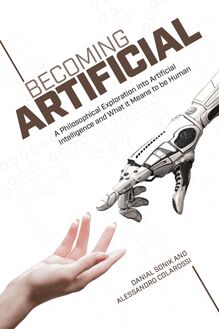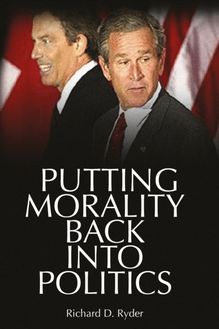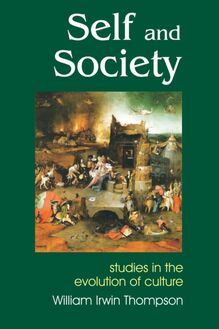-
 Univers
Univers
-
 Ebooks
Ebooks
-
 Livres audio
Livres audio
-
 Presse
Presse
-
 Podcasts
Podcasts
-
 BD
BD
-
 Documents
Documents
-
- Cours
- Révisions
- Ressources pédagogiques
- Sciences de l’éducation
- Manuels scolaires
- Langues
- Travaux de classe
- Annales de BEP
- Etudes supérieures
- Maternelle et primaire
- Fiches de lecture
- Orientation scolaire
- Méthodologie
- Corrigés de devoir
- Annales d’examens et concours
- Annales du bac
- Annales du brevet
- Rapports de stage
La lecture à portée de main
Vous pourrez modifier la taille du texte de cet ouvrage
Découvre YouScribe en t'inscrivant gratuitement
Je m'inscrisDécouvre YouScribe en t'inscrivant gratuitement
Je m'inscrisEn savoir plus
Vous pourrez modifier la taille du texte de cet ouvrage
En savoir plus

Description
Sujets
Informations
| Publié par | Andrews UK |
| Date de parution | 22 juillet 2013 |
| Nombre de lectures | 0 |
| EAN13 | 9781845406691 |
| Langue | English |
Informations légales : prix de location à la page 0,0374€. Cette information est donnée uniquement à titre indicatif conformément à la législation en vigueur.
Extrait
Title page
GLOBAL MODERNITY
And Other Essays
TOM RUBENS
SOCIETAS
essays in political
& cultural criticism
imprint-academic.com
Copyright page
Copyright © Tom Rubens, 2013
The moral rights of the author have been asserted.
No part of this publication may be reproduced in any form without permission, except for the quotation of brief passages in criticism and discussion.
Originally published in the UK by
Imprint Academic, PO Box 200, Exeter EX5 5YX, UK
Originally distributed in the USA by
Ingram Book Company,
One Ingram Blvd., La Vergne, TN 37086, USA
2013 digital version by Andrews UK Limited
www.andrewsuk.com
Preface
This group of essays follows a similar eclectic pattern to that found in my previous essay collections. There is social, economic and political commentary; cultural observation; ethical discussion; and some epistemological and ontological exploration. My aim has been to cater to a wide range of reader interests, and especially to readers who not only have no problem in moving from one type of subject matter to another but who also derive positive satisfaction from so doing.
Also, a few of the essays, on political issues, reflect the specific point in time in which they were written. However, I have decided to let their arguments stand, as being fully valid at the time they were advanced, even if they are less so, or no longer so, now.
T.R., October 2012
ONE
Global Modernity
In an earlier book, Spinozan Power in a Naturalistic Perspective , a I briefly discussed the place that is and should be occupied throughout world society by an extensive and demanding intellectual culture. Since coverage was global, the discussion referred to both Western society and the Third World. Regarding the latter, the point was made that the issue of a demanding culture was, at present, less pressing than in the West because of the dire economic problems faced by most Third World countries, and because of the consequent need, for the time being, for most people in those countries to prioritise such problems. However, it was added that the issue would, in the long term, have to be faced much more widely in the Third World, on the scale that it is currently being faced in the economically more secure West. [1]
Now, following on from those points: in the modern world, at any rate among people who claim to be engaged with the challenges of modernity, the issue in question is inescapable, wherever one lives. Modernity itself is what makes the issue unavoidable. While the concept of modernity is of course a highly complex one, involving many different issues, it can to a considerable extent be summarised by reference to the positions of two leading 20 th -century thinkers: Popper and Malraux. Popper speaks of “the strain of civilisation”, a strain produced partly by the sheer amount of knowledge accrued in modern times, and by mankind’s consequent obligation to bear the weight of that knowledge as it attempts to tackle the world’s manifold problems. Similarly, Malraux refers to “the imaginary museum” of (again) accumulated knowledge now in humanity’s possession: a museum which the mind must traverse thoroughly if it is authentically to call itself modern. [2]
Thus, modernity means, among other things, the taking on of cognitive immensity, and on a scale never before possible because knowledge, in all its forms, has never before been so widely available. At the same time, it means even more than this cognitive embracing; it entails all kinds of attitudinal and ethical revaluation and reorientation, related to knowledge-possession. Taken together, these various challenges and pressures clearly constitute an intellectually demanding culture.
Overall, the growth of knowledge derived from systematic methods of research and experimentation - knowledge, for example, of the hard sciences, of history, anthropology and philosophical ideas - has undermined much of the religious mentality, as held, at any rate, by the majority of believers: a mentality which emphasises not knowledge but faith, not empirical investigation but acquiescence in received ideas. Such a mentality contains little that is intellectually demanding, in contrast to the one we have been examining. This is true of majority adherence to all the world’s religions.
However, everywhere in the world, the more Popper’s “strain of civilisation” is felt, and the more Malraux’s “imaginary museum” is travelled, the more the modern mind will know the demands under discussion. The more, therefore, will it move away from the popular religious mindset (and perhaps from religious mindsets of all kinds).
Let it not be said that the concept of modernity is a purely Western one, applicable only or largely to Western cultural conditions. World history, and not just Western, shows that the expansion of knowledge, wherever it has occurred, has usually weakened positions based on absence of knowledge; and that growth in investigative activity has usually damaged outlooks grounded in lack of such activity. Now, in modern times, for the first time in history, the knowledge and the investigative methods have a globally shared character: one that can be called empirical-scientific. Hence, involvement with that knowledge and investigation is a globally-shared experience. The same, then, is true of the strain and demand which inevitably attend this intellectual position, and which are therefore endemic to modernity.
Finally, while it is the case that, for economic and educational reasons, this position is much more widespread in the West than in other countries, it could become a large-scale phenomenon in the latter, if (admittedly a big ‘if’) they were to see an extensive improvement in their economic and educational situation. Then, the issue of a demanding intellectual culture would become a major one in the Third World. Its ever-present and ubiquitous potential for achieving this status would be realised.
a London: Janus Publishing Company, 2010 (1996), pp. 35-6.
1 I am of course mindful of the considerable problems now (2010) faced by Western economies. But these are, as yet at least, not of the magnitude of those faced in the Third World. So, in the present Western situation, uncertain though it is, consideration of the cultural issue remains highly appropriate.
2 Compare, incidentally, Popper’s and Malraux’s phrasing with that of two of their 19 th -century intellectual precursors: Matthew Arnold and Hardy. Arnold spoke of the “multitudinousness” of the modern world, and Hardy of the “ache of modernism”.
“From Each According to His Ability”
Most people on the political Left accurately identify the basic problems with the capitalist system, in both its industrial and financial aspects: the dominance of the profit-motive, the inadequacy of regulation and control from outside the system and the corruption. At the same time, all progressively minded people, be they of the political Left or the Centre, wish to see fundamental changes in the economic status quo : most obviously, the ending of corruption, and either the diminution or termination of the profit-motive, plus a growth, varying in degree in accordance with the particular ideology, of political regulation and control. There is a wide spectrum of opinion on how foundational improvements can be effected.
Returning now to the Left, specifically the Marxist Left: Marx famously said of the economic system he advocated, “From each according to his ability, to each according to his need”. Given that he recommended an economically classless society, this statement appears to accord with the idea of classlessness: abilities between individuals differ, as do economic needs (as, for example, between a single man and a married one with a family), but these differences need not create class divisions; they can be fully accommodated within the framework of classlessness.
At first glance, Marx’s argument may seem a sound one. But issues arise if we begin to query whether social differentiation can, in fact, fit seamlessly with economic standardisation. A highly complex form of society, such as exists in the West, features the exercise of many different types of ability, and not just types but also levels within those types. This is true not only of the paid professions, especially those connected with science and technology, but also of culture in general, whether pay is involved or not. The extent to which this variegation, as an empirical fact, is the result of differences in environmental opportunity is an important question, for Marxists no less than for others. However, unless the contention is that the advent of total equality of opportunity will produce complete identity of outcomes, with everyone displaying the same types and levels of capacity in all fields, the position must surely be that ability-differentiation will continue in whatever future form society takes, and whatever the economic system.
If the above position is valid, then the issue of capacity-variation remains of key interest. It may be argued by Marxists that, yes, ability differences are a fundamental reality but, in an economically classless society, the people of superior ability will then contribute more to the general well-being than those of inferior ability. This point is fair enough, provided we assume largesse of spirit on the part of the super-capable. But, even so, there are complications. Higher ability, especially in the field of the humanities, is often accompanied by a general frame of mind which is more developed and circumspect than that found among those of lower ability; and this difference, in quality and degree of consciousness, in mental energy and exploratio
-
 Univers
Univers
-
 Ebooks
Ebooks
-
 Livres audio
Livres audio
-
 Presse
Presse
-
 Podcasts
Podcasts
-
 BD
BD
-
 Documents
Documents
-
Jeunesse
-
Littérature
-
Ressources professionnelles
-
Santé et bien-être
-
Savoirs
-
Education
-
Loisirs et hobbies
-
Art, musique et cinéma
-
Actualité et débat de société
-
Jeunesse
-
Littérature
-
Ressources professionnelles
-
Santé et bien-être
-
Savoirs
-
Education
-
Loisirs et hobbies
-
Art, musique et cinéma
-
Actualité et débat de société
-
Actualités
-
Lifestyle
-
Presse jeunesse
-
Presse professionnelle
-
Pratique
-
Presse sportive
-
Presse internationale
-
Culture & Médias
-
Action et Aventures
-
Science-fiction et Fantasy
-
Société
-
Jeunesse
-
Littérature
-
Ressources professionnelles
-
Santé et bien-être
-
Savoirs
-
Education
-
Loisirs et hobbies
-
Art, musique et cinéma
-
Actualité et débat de société
- Cours
- Révisions
- Ressources pédagogiques
- Sciences de l’éducation
- Manuels scolaires
- Langues
- Travaux de classe
- Annales de BEP
- Etudes supérieures
- Maternelle et primaire
- Fiches de lecture
- Orientation scolaire
- Méthodologie
- Corrigés de devoir
- Annales d’examens et concours
- Annales du bac
- Annales du brevet
- Rapports de stage




















